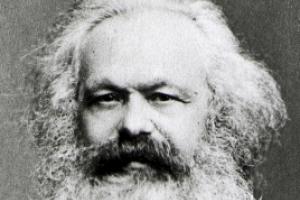The Life and Times of Karl Marx, in the words of Ronnie Kasrils
Daily Maverick (South Africa)
 What fashioned Marx, Marxist theories and challenges faced in South Africa. Essential today is an international solidarity movement uniting the broad masses of people of all lands under the leadership of organized labor, of hand and brain, to stop the perfidious transnational corporations, their government tools, and capitalism's imperialist wars - towards a new internationalism of the working class, labor masses, and freedom loving people everywhere.
What fashioned Marx, Marxist theories and challenges faced in South Africa. Essential today is an international solidarity movement uniting the broad masses of people of all lands under the leadership of organized labor, of hand and brain, to stop the perfidious transnational corporations, their government tools, and capitalism's imperialist wars - towards a new internationalism of the working class, labor masses, and freedom loving people everywhere.









Spread the word